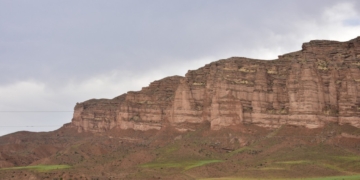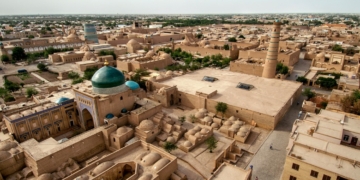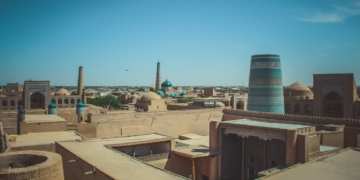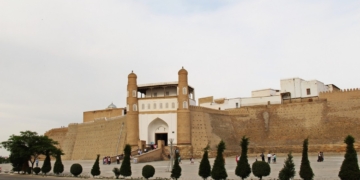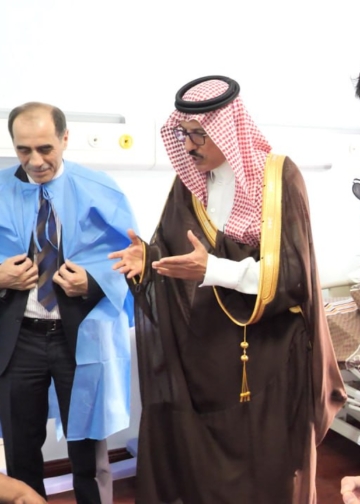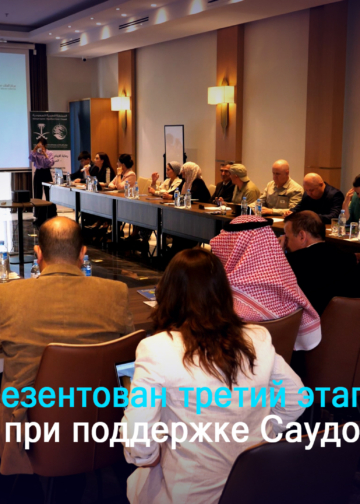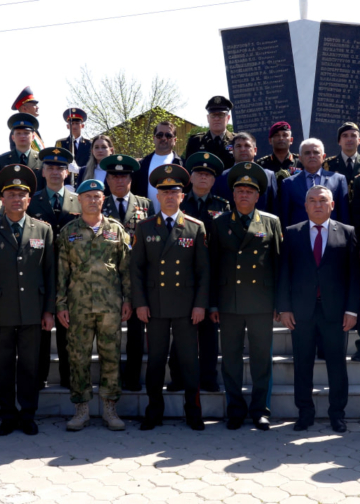id: 105702
date: 4/25/2007 12:53
refid: 07DUSHANBE628
origin: Embassy Dushanbe
classification: CONFIDENTIAL
destination:
header:
VZCZCXRO6383
RR RUEHDBU
DE RUEHDBU #0628/01 1151253
ZNY CCCCC ZZH
R 251253Z APR 07
FM AMEMBASSY DUSHANBE
TO RUEHC/SECSTATE WASHDC 0140
RUCPDOC/USDOC WASHDC 0152
INFO RUEAIIA/CIA WASHDC
RUCNCIS/CIS COLLECTIVE
RHEFDIA/DIA WASHINGTON DC
RUEHNE/AMEMBASSY NEW DELHI 2074
RHEHAAA/NSC WASHINGTON DC
RUEHDBU/AMEMBASSY DUSHANBE 1807
—————— header ends —————-
C O N F I D E N T I A L SECTION 01 OF 03 DUSHANBE 000628
SIPDIS
SIPDIS
COMMERCE/ITA FOR RISD; COMMERCE/ITA FOR DYCK; STATE FOR SCA/CEN, STATE
FOR EB
E.O. 12958: DECL: 4/25/2017
TAGS: ECON, EFIN, EINV, ETRD, PGOV., PREL, TI, AF
SUBJECT: SETTING THE SCENE FOR DEPUTY ASSISTANT SECRETARY OF COMMERCE
PAUL DYCK’S MAY 6-9 VISIT TO TAJIKISTAN
CLASSIFIED BY: Tracey Ann Jacobson, Ambassador, U.S. Embassy,
Dushanbe, State.
REASON: 1.4 (d)
1. (C) You will be pleasantly
surprised by the veneer of
Dushanbe’s active consumer economy, which hides the underbelly
of massive corruption and industrial decay. The government,
including the recently renamed Foreign Minister Zarifi and
President Rahmon (going back to their Tajik roots), insists on
talking «economics before politics.» However, they turn a deaf
ear when we insist that only reforming their business climate
will attract Western investors, and are insulted by the
suggestion that corruption scares off businesses. They point to
over $800 million in no-strings-attached Chinese loans they have
received for infrastructure projects, and tell us to bring
American companies to Tajikistan.
2. (U) We enjoy friendly
relations with this small but
strategic country on the Afghan border, and view economic and
democratic development here as a key to ensuring long-term
regional stability. While
U.S.-Tajik bilateral economic
relations are small ($103 million trade turnover last year), we
continue to seek avenues for U.S. private participation in the
Tajik economy— and encourage international investment to help
advance economic reforms and stability.
3. (U) Existing foreign
businesses welcome the potential
opening of an American Chamber of Commerce in Tajikistan, as a
signal that Tajikistan is catching up with the rest of the
world. While few American
companies operate here, several
US-Tajik joint ventures have expressed interest in joining an Am
Cham. Following a series of
working group meetings and several
Am Cham-sponsored events, your attendance at the planned Am Cham
founder’s dinner on May 8 will encourage Tajik-American
businesses to establish a chamber here.
4. (U) Your visit provides
another chance for Tajik government
officials to hear first-hand the steps they need to take for
economic development, a message they do not necessarily accept.
In your meetings, you will encounter a great enthusiasm for U.S.
investment, and requests to send American companies to
Tajikistan, but few substantial examples of what the Tajiks are
doing to create an attractive environment or recruit
international businesses beyond vague talks of «fighting
corruption» and a «law on foreign investments» that has
yet
truly to protect the few international firms that run into
problems. Cross-border trade
faces customs challenges, visa
issues, and political mistrust.
The Department of
Commerce-sponsored Central Asia Transportation Infrastructure
Conference on May 7 offers private companies across the region a
chance to push their officials to reform, and to enhance trade
relationships in the region.
ENERGY AND INFRASTRUCTURE
5. (SBU) This past winter was a
cold and dark one for most
Tajiks, who lacked electricity and heat in all areas outside
central Dushanbe. Tajiks find the
situation very ironic,
considering the country’s massive hydropower potential. Lousy
relations with neighboring Uzbekistan prevented normal shipments
of electricity, oil and gas into Tajikistan. You will be asked
about U.S. plans for developing Tajikistan’s energy sector.
Although the U.S. company AES is opening a Dushanbe office, we
are not a major player in this sector, compared to Russia,
China, and Iran, who are all building hydropower stations. You
will be asked when the United States will build Dashti-Jhum, a
massive 4000 megawatt dam on the Afghan border.
6. (SBU) As part of the push for
regional integration, the
United States is pushing for Tajik hydropower to be exported to
Pakistan and Afghanistan. A major
issue is who will pay for the
electricity once it is produced.
To that end, the United States
is working in Afghanistan and Tajikistan to develop the
regulatory environment and funded a feasibility study for
transmission lines to Afghanistan.
We are currently
facilitating the negotiation of a power purchasing agreement
between Tajikistan and Afghanistan, and are encouraging U.S.
private sector participation in the development of hydropower
and related infrastructure.
7. (SBU) Given the steady flow of
state-funded investment from
China, Iran and Russia in hydropower, transmission lines,
telecom, roads and tunnels, the Tajiks will be looking for the
same kind of engagement from the United States — and will be
less interested in hearing that they should improve their
DUSHANBE 00000628 002 OF 003
business climate in order to attract private companies.
TRANSPORTATION
8. (C) It is incredibly hard to get in and out of
Tajikistan.
You will leave Dushanbe on the twice-weekly Turkish Air flight
to Istanbul, the only flight for Western business travelers, and
the only airline serving Tajikistan where you can buy a ticket
online. Government-owned Tajik
Air has refused to reform
despite massive pressure from President Rahmon and international
donors. Tajik Air’s rapidly aging
fleet will last only a few
more years, and they have been actively pursuing purchase of new
planes. The Embassy has
facilitated communications with Boeing
and with leasing companies interested in providing aircraft to
Tajik Air. Although we view this
as a good opportunity for U.S.
exports, Tajik Air has been unable to come up with the
financing, largely because they are unwilling to open their
books to independent audits. Our
message to Tajik Air is they
need to reform their ticketing policies and join the
international reservations system, adopt international
accounting standards, and separate their airport operations and
civil aviation administration from the airline operations.
Tajik Air’s lack of development is a major hindrance to
international investment.
Businesses will find it easier to go
to Kazakhstan and Kyrgyzstan
9. (SBU) Tajikistan relies on
rail transport for most of its
trade. Northern and southern rail
routes carry cotton and
aluminum out of the country and bring in consumer goods,
vehicles, food, and agricultural equipment. Main rail routes
pass through Uzbekistan and up through Kazakhstan and Russia
towards Europe. Some goods pass
through Uzbekistan to
Turkmenistan, Iran, and the Caspian Sea.
There are no rail
links to China or Afghanistan.
Roads through the mountains
range from poor and jaw-rattling in good weather to impassable
during winter.
10. (C) Tajik officials and
businesspeople are very excited
about the opening of the U.S.-funded bridge at Nizhniy Pyanj,
(which you will visit on Victory Day — May 9). The bridge will
allow the Tajiks more opportunity to bypass Uzbekistan and look
to South Asia as a commercial destination and partner. The
bridge should open in August with Afghan President Karzai, Tajik
President Rahmon, and a high-level U.S. delegation attending.
The Tajik Foreign Minister floated the idea of a 10-vehicle
commercial convoy crossing the bridge carrying export goods from
Tajikistan to Afghanistan and Pakistan as part of the opening
ceremony. Security issues in
Afghanistan may prevent the convoy
from traveling south at the official opening, but it’s a vision
that supports our concept of regional economic integration.
US — TAJIK TRADE
11. (U) The United States
exported $40 million in
pharmaceuticals, foodstuffs, and consumer products to Tajikistan
in 2006. Tajikistan in return
sent $60 million in aluminum to
the United States. In 2007,
Tajikistan’s overall exports will
grow to $1.2 billion, while its imports will swell to $2
billion. Tajikistan sustains this
deficit through a massive
inflow of foreign remittances from Tajik workers abroad in
Russia, Kazakhstan and other countries.
Last year, official
remittances (passing through banks) exceeded $1.2 billion; quite
a boost for a $3 billion economy.
Remittances have fed consumer
spending and construction, but do not feed back into the economy
as investments due to the weak banking sector and uncertain
investment climate.
12. (U) U.S. companies active
here include the energy company
AES, the telecom company MCT, COMSUP in mining, and Wakefield
Inspections, Rakhsh, and Javoni in textiles. The U.S.-owned Obi
Zulol water factory in northern Tajikistan ships bottled water
to NATO troops in Afghanistan.
The major investment and trade
opportunities for U.S. companies include hydropower generation
and services, construction equipment, agribusiness machinery,
telecommunications equipment, mining equipment, and food
processing and packaging.
INVESTMENT CLIMATE
13. (U) Tajik officials will
insist that Tajik legislation
provides a welcome climate for foreign investment. However,
courts do not uphold contracts or the rule of law. Investors
bristle at the hassle of Tajik corruption; repeated demands for
money from low and mid-level officials across the government
dissuade entrepreneurs. Small
businesses flourish outside the
DUSHANBE 00000628 003 OF 003
official economy trading agricultural and consumer goods,
avoiding taxes and customs fees.
Our consistent message to the
Tajiks is: support the growth of small and medium enterprises
and reduce barriers to investment such as corruption.
14. (U) Businesses face the usual
laundry list of challenges:
excessive standardization and certification regulations;
difficult and corrupt customs clearances; confusing licensing
requirements. Tajikistan’s
nascent banking sector faces
numerous challenges: insufficient capital, limited banking
services, and mistrust as a result of defaults in the 1990’s.
Long-term loans are hard to come by in this cash-based economy.
15. (SBU) One recent welcome turn
of events concerned Gerald
Metals — after over two years, Tajikistan resolved the
long-standing dispute by agreeing to pay the entire $30 million
the U.S. company claimed following the default by the
state-owned aluminum company TadAZ.
In addition, GDP growth
continues at over 7% annually, beginning to lift Tajikistan out
of extreme poverty. Tajikistan
launched WTO accession
negotiations in 2004, and made progress in 2005 on the Goods and
Services Market Access Negotiations.
We look forward to your
visit and the dialogue it will bring.
JACOBSON
=======================CABLE ENDS============================
id: 105707
date: 4/25/2007 13:18
refid: 07DUSHANBE629
origin: Embassy Dushanbe
classification: UNCLASSIFIED//FOR OFFICIAL USE ONLY
destination:
header:
VZCZCXRO6442
PP RUEHLN RUEHVK RUEHYG
DE RUEHDBU #0629 1151318
ZNR UUUUU ZZH
P 251318Z APR 07
FM AMEMBASSY DUSHANBE
TO RUEHC/SECSTATE WASHDC PRIORITY 0143
INFO RUCNCIS/CIS COLLECTIVE
RUEHBUL/AMEMBASSY KABUL 2067
RUEHNE/AMEMBASSY NEW DELHI 2077
RUEHIL/AMEMBASSY ISLAMABAD 2099
RUEAIIA/CIA WASHINGTON DC
RHEHAAA/NATIONAL SECURITY COUNCIL WASHINGTON DC
RHEFDIA/DIA WASHINGTON DC
RUEHDBU/AMEMBASSY DUSHANBE 1810
—————— header ends —————-
UNCLAS DUSHANBE 000629
SIPDIS
SENSITIVE
SIPDIS
E.O. 12958: N/A
TAGS: PREL, PGOV, PHUM, ECON, ENRG, TI
SUBJECT: TAJIK PRESIDENTIAL ADVISOR CALLS IN AMBASSADOR OVER REUTERS
INTERVIEW AND HUMAN RIGHTS REPORT
1. (SBU) Senior Presidential Advisor for Foreign
Affairs
Rahmatulloyev called in Ambassador April 24 to discuss an April
23 Reuters article, in which she said corruption is the major
impediment to Western investment in Tajikistan. Rahmatulloyev
said President Rahmon personally pays attention to such
articles, and was embarrassed by the negative tone of the
Reuters piece, especially «when the government is doing so
much»
to combat corruption. Rahmon was apparently also irritated by
the weak characterization of Tajikistan’s efforts to fight human
trafficking in DRL’s press report on human rights in Tajikistan.
«A more positive focus would
help us develop our cooperation.
Such a negative focus hurts our bilateral efforts,»
Rahmatulloyev argued.
2. (SBU) Ambassador responded that she stood by what
she had
said in the interview — corruption and lack of a transparent,
predictable environment are real problems. Many U.S businesses
and partners have difficulties serious enough to require embassy
intervention — even at the Ambassadorial level. The Gerald
Metals lawsuit took years to resolve; the Tajik government is
still treating COMSUP like a junior partner even though COMSUP
now owns 100% of its mining business; and the Nizhniy Pyanj
bridge is months behind schedule due to the government’s delays
in supplying cement and issuing a license for the contractor.
The Ambassador noted that in the hour-long interview with
Reuters, she had discussed many subjects, including democratic
reform, security cooperation, and regional issues, and had
specifically mentioned some positive steps the government was
taking against corruption, which Reuters decided not to include.
Ambassador pushed back on
Rahmatulloyev’s suggestion that she
either insist on pre-clearing articles that quote her or refuse
to give any more interviews to Reuters, saying that either would
be a violation of media freedom.
3. (SBU) Rahmatulloyev expressed particular concern
about
AES’s lack of activity in Tajikistan, insisting that «they’ve
promised to build a hydropower station.» Ambassador said she
couldn’t speak authoritatively for a private company, but noted
that AES was likely waiting for the results of World Bank and
Asian Development Bank feasibility studies on the construction
of electrical transmission lines to Afghanistan/Pakistan.
Further, AES would probably want to see successful results from
a smaller project before investing in a big project like a dam.
She noted (yet again) that the U.S. government cannot tell
private companies when and where to invest. Rahmatulloyev said
Rahmon had asked him to raise debt forgiveness; Ambassador
explained that it is unlikely that the Treasury and the Congress
would be willing to pursue the new legislation necessary to
forgive Tajikistan’s 17 million USD debt when the country is
taking on so much new debt from China.
4. (SBU) Comment: We are unsure why the Reuters
article earned
so much ire; it contained nothing we haven’t said before, many
times. Although the tone of the
meeting was friendly,
Rahmatulloyev made it clear that Rahmon was personally insulted.
Clearly, the president is having
trouble digesting the fact
that Western businesses are not impressed by the creation of a
new anti-corruption agency (run by an allegedly corrupt former
city prosecutor) or speeches denouncing corruption. It is
possible that Rahmon’s irritation over the article is
symptomatic of the larger problem: the fact that the one-note
symphony (hydro, hydro, hydro) which forms the backdrop for
nearly every Tajik government engagement with foreign officials
has not produced new dams. While
the Tajik population has (so
far) given Rahmon a pass on his increasing authoritarianism,
power shortages threaten to erode his popularity, particularly
if the government commits to export up to 1000 megawatts of
electricity to South Asia, while Tajiks endure another cold,
dark winter. End Comment.
JACOBSON
=======================CABLE ENDS============================
id: 105868
date: 4/26/2007 11:30
refid: 07DUSHANBE637
origin: Embassy Dushanbe
classification: CONFIDENTIAL
destination: 07DUSHANBE637
header:
VZCZCXRO7872
PP RUEHDBU
DE RUEHDBU #0637/01 1161130
ZNY CCCCC ZZH
P R 261130Z APR 07
FM AMEMBASSY DUSHANBE
TO RUEHC/SECSTATE WASHDC PRIORITY 0159
INFO RUCNCIS/CIS COLLECTIVE
RUEHBUL/AMEMBASSY KABUL 2072
RUEHIL/AMEMBASSY ISLAMABAD 2100
RUEHNE/AMEMBASSY NEW DELHI 2078
RUEAIIA/CIA WASHINGTON DC
RHEFDIA/DIA WASHINGTON DC
RHEHAAA/NATIONAL SECURITY COUNCIL WASHINGTON DC
RUEHDBU/AMEMBASSY DUSHANBE 1826
—————— header ends —————-
C O N F I D E N T I A L SECTION 01 OF 02 DUSHANBE 000637
SIPDIS
SIPDIS
E.O. 12958: DECL: 4/26/2017
TAGS: PGOV, PREL, ECON, EFIN, ENRG, TI, AF
SUBJECT: TAJIKS, WORLD BANK AND CONSULTANTS ON DIFFERENT PAGES FOR
REGIONAL ENERGY PROJECT
CLASSIFIED BY: Tracey Ann Jacobson, Ambassador, U.S. Embassy,
Dushanbe, State.
REASON: 1.4 (b), (d)
1. (C) Summary: Tajikistan’s
April 24 energy roundtable
underscored the fundamentally different perspectives of the
World Bank and its consultants, and the Tajik government in
approaching a project aimed at bringing 1000 megawatts of Tajik
and Kyrgyz electricity to Afghanistan and Pakistan. The
meeting, intended to launch the consultants’ fieldwork for the
Central Asia and South Asia Regional Energy Market (CASAREM)
feasibility studies, was marked by the absence of a number of
key players, including SNC Lavalin — the consultants the Asian
Development Bank hired to conduct the techno-economic study —
and some of Tajikistan’s top decision makers, including Deputy
Prime Minister Ghulomov.
2. (C) While the five-hour meeting allowed the World
Bank to
initiate a frank discussion about the concrete steps the Tajiks
must take to realize the project, comments and questions from
the Tajik side revealed that they are still thinking on a
strategic, not specific level.
The challenge before the World
Bank is to ensure that Tajiks give realistic answers to the
highly detailed and technical questions needed to analyze
Tajikistan’s electricity export capacity. Obtaining sound
information from the Tajiks will require continuing intensive
discussions by the World Bank’s consultants and will not be
forthcoming through e-mail exchanges from afar. End Summary.
3. (C) Instead of Deputy Prime
Minister Asadullo Ghulomov —
Tajikistan’s energy and infrastructure czar — Minister of
Energy and Industry Gulov opened the meeting, but left shortly
after his remarks, as did the Chairman of the state-owned
utility company Barki Tojik, Sharifhon Samiev. (Note: Also
notably absent was former minister of Energy Abdullo Yerov, now
an energy advisor to the presidential administration. End Note.)
Robin Jones from Fieldstone
Capital outlined their work plan,
along with Nexant, and Chadbourne and Park, to examine the
commercial feasibility of the regional project. Harvey Salgo,
an advisor to the Multi-Country Working Group, stood in for SNC
Lavalin by sketching the basics of the techno-economic
feasibility study.
4. (C) The World Bank’s Raghu
Sharma presented risk mitigation
instruments available for the project to the dwindling
post-coffee break audience. In
other remarks, he noted that
Tajikistan needs to meet its domestic demand in order to
establish the political credibility of its export commitments.
Increases in international prices of steel, energy equipment and
services meant Tajikistan may need to revise the internal tariff
structure to ensure cost recovery.
Hydropower offered great
export potential, but because it is seasonal, Tajikistan should
think about coal resources to ensure a steady supply of
exportable energy. «We may
need a revised approach on the
financial viability,» he cautioned, noting these were all
fundamental points for the project’s member states to consider
when deciding if it was a «go or no-go» at future working
group
meetings in Jeddah and Kabul.
Talking about my generation
——————————————
5. (C) A number of Tajik officials — Minister
Gulov, Deputy
Minister Akram Suleimenov, Deputy Chair of Barki Tojik Alexei
Silantiev — pressed for foreign investment
in new power
generation projects — with the predictable shout-out for the
United States to build the 4000 megawatt power station
Dashti-Jhum. When Sharma asked
hypothetically how Tajikistan
would decide between domestic commitments to the state-owned
aluminum facility (Tajikistan’s biggest electricity consumer)
and customers in Afghanistan and Pakistan, should the water
levels fall to the point that there was no surplus in a given
year, the Tajiks replied, «We will build more generation
projects.» Sharma was unable
to extract a short-term concrete
answer to the potential problem.
Silantiev noted the need for
an international consortium to develop the 3600 megawatt Rogun
hydropower station quickly.
6. (C) Silantiev asked why the project was focused
on
exporting 1000 megawatts, when Pakistan had expressed interest
in 4000 megawatts. Sharma and
Nexant’s Ray Holton both implored
the Tajiks to think about this as a very concrete initial
project based on existing surpluses that would set the stage for
DUSHANBE 00000637 002 OF 002
larger export projects. Sharma
joked with the Tajiks, «Where
are those 4000 megawatts you want to export?» he said. «You
don’t have that kind of export potential yet. I’ll personally
give one million dollars to anyone who can even ensure year
round surplus of 1000 megawatts by 2010.»
7. (C) Only Suleimenov and Pulat Mukhiddinov, First
Deputy
Minister of Energy and Industry, appeared to take the point.
Mukhiddinov noted that Tajikistan needed to take advantage of
the international financial institutions’ help in managing risk,
but doing some back-of-the-envelope calculations, Tajikistan
should be able to export up to 1000 megawatts within the
framework of the project. He also
reported that in May,
Tajikistan would host a meeting of up to 16 companies interested
in investing in coal-fired power stations.
What next??
——————
8. (C) The absence of Asian Development
Bank-funded
consultants SNC Lavalin undercut the purpose of bringing
together all the players involved in Tajikistan’s part of the
regional energy project at the same table to explain the
specifics and mechanics of the feasibility studies. Even
privately to PolOff, Salgo declined to speculate as to why
SNC-Lavalin failed to visit Afghanistan or Tajikistan. Asked if
they planned to visit, he only shrugged.
«I assume so.» A
project officer for the Asian Development Bank attended for the
first part of the meeting, but left at the coffee break.
9. (C) Jones told PolOff during
the coffee break that their
visit to Tajikistan was intended to make contacts and create
relationships, so they could be in touch over e-mail for future
questions and research. And how
would Fieldstone and Nexant
verify that the information provided by the Tajik government was
accurate? Jones looked at PolOff
with raised eyebrows. «Good
question.»
Comment
—————
10. (C) It was clear that only a
few Tajik officials understood
the purpose of the roundtable, or specific goals of the project.
Everyone showed enthusiasm for
exports, but despite Sharma’s
Herculean efforts to bring the discussion to concrete steps and
questions, the Tajiks still talked very broadly about the need
for foreign investors to increase power generation capacity.
Hopefully, Tajik decision makers will eventually digest and
debate the tough questions Sharma and the consultants posed.
However, the absence of Ghulomov and the nominal participation
by Gulov and Samiev indicates that even if the deputy-level
ministers understand the mechanics of the regional export
project, the highest officials are still working off a different
page, where big new dams are more important than power purchase
agreements and commercial viability.
11. (C) The effectiveness of the
consultants will be limited if
they do not put their time in on the ground. Tajikistan is not
yet on the information superhighway, and few government
officials communicate by e-mail.
Neither Barki Tojik nor the
Minister of Energy and Industry has enough decent
English-speakers to maintain meaningful cooperative
correspondence. Further, the
Soviet habit of fudging numbers
makes state-issued statistics questionable in the best of
circumstances, let alone when the government is desperately
trying to secure international funding for its hydro-sector.
Due diligence will be essential, and it cannot be conducted
long-distance.
JACOBSON
=======================CABLE ENDS============================
id: 106225
date: 4/30/2007 7:41
refid: 07DUSHANBE640
origin: Embassy Dushanbe
classification: UNCLASSIFIED//FOR OFFICIAL USE ONLY
destination:
header:
VZCZCXRO0760
RR RUEHLN RUEHVK RUEHYG
DE RUEHDBU #0640 1200741
ZNR UUUUU ZZH
R 300741Z APR 07
FM AMEMBASSY DUSHANBE
TO RUEHC/SECSTATE WASHDC 0165
INFO RUCNCIS/CIS COLLECTIVE
RUEAIIA/CIA WASHDC
RHEFDIA/DIA WASHINGTON DC
RUCNDT/USMISSION USUN NEW YORK 1441
RUEHVEN/USMISSION USOSCE 1958
RUEHBS/USEU BRUSSELS 1215
RUEHBUL/AMEMBASSY KABUL 2074
RUEHNE/AMEMBASSY NEW DELHI 2080
RUEHIL/AMEMBASSY ISLAMABAD 2102
RUEHDBU/AMEMBASSY DUSHANBE 1832
—————— header ends —————-
UNCLAS DUSHANBE 000640
SIPDIS
SENSITIVE
SIPDIS
STATE FOR SCA/CEN, DRL
E.O. 12958: N/A
TAGS: PGOV, PHUM, KDEM, TI
SUBJECT: TAJIKISTAN: POLITICAL
PARTY NARROWLY ESCAPES CLOSURE
1. (SBU) Rahmatullo Zoyirov, Chairman of the Social
Democratic
Party of Tajikistan, breathed a sigh of relief when on April 24
the Supreme Court acquitted him of charges of not properly
reporting on his party’s activities and providing the necessary
documents to the Ministry of Justice.
2. (SBU) In January of 2007, the Ministry of Justice demanded
the Social Democratic Party’s documents from Zoyirov including
financial records, tax documents, and an annual report of its
activities. Instead of directly
submitting the documents to the
Ministry of Justice, Zoyirov published the information in the
national media. On March 5 the
Ministry of Justice sent a
written letter to the Social Democratic Party’s office warning
the party that if it did not submit all documents within ten
days the Ministry of Justice would suspend the party’s
operations.
3. (SBU) Zoyirov contends that he never received the
letter
and therefore could not comply with the request. Zoyirov said
he visited the Ministry of Justice at least ten times between
December 2006 and March 2007 and questioned why none of his
interlocutors ever asked him for any documents during their
meetings. Prior to the court
hearing, Zoyirov met with PolOff
April 20 to discuss his party’s latest problem, but expressed
confidence that he would win the case.
On April 24, the Supreme
Court found Zoyirov not guilty.
4. (SBU) Why would the government go to the trouble
of
prosecuting Zoyirov only to find him not guilty? Over the past
several weeks, Zoyirov has publicly issued strong statements
criticizing the government.
Zoyirov announced a new Alternative
Development Strategy for Tajikistan which prioritizes
legislative and political reform.
Newspapers published his
comments criticizing the current National Development Strategy
for not tackling corruption and organized crime and only
focusing on economic development.
He is also assisting and
advocating on behalf of Dushanbe residents who are in danger of
being displaced from their homes under a city re-zoning plan.
Irked by Zoyirov’s meddling, Mayor Ubaidolloyev publicly said
that Zoyirov should mind his own business and stick to politics
rather than focus on economic developments. According to
Zoyirov, Ubaidolloyev stated in a public meeting, «I will show
him.»
5. (SBU) COMMENT:
Zoyirov is the preeminent constitutional
lawyer in Tajikistan and used to serve as President Rahmon’s
legal advisor on constitutional matters.
In fact, he helped
write the constitution. His
knowledge of the law and good
connections with the Supreme Court judges whom he considers to
be colleagues, no doubt helped him fight against the
government’s desire to shut down the party. The government
likely intended the court case as a warning to Zoyirov that his
outspoken criticism is not welcome, and that at any time, it can
pull the plug on his party. END
COMMENT.
JACOBSON
=======================CABLE ENDS============================
id: 106346
date: 4/30/2007 17:02
refid: 07DUSHANBE643
origin: Embassy Dushanbe
classification: UNCLASSIFIED
destination:
header:
VZCZCXRO1457
RR RUEHLN RUEHVK RUEHYG
DE RUEHDBU #0643 1201702
ZNR UUUUU ZZH
R 301702Z APR 07
FM AMEMBASSY DUSHANBE
TO RUEHC/SECSTATE WASHDC 0167
INFO RUEHBS/USEU BRUSSELS 1216
RUEHDBU/AMEMBASSY DUSHANBE 1835
RUCNCIS/CIS COLLECTIVE
RUEAIIA/CIA WASHDC
RHEFDIA/DIA WASHINGTON DC
RUEHBUL/AMEMBASSY KABUL 2075
RUEHNE/AMEMBASSY NEW DELHI 2081
RUEHIL/AMEMBASSY ISLAMABAD 2103
RUCNDT/USMISSION USUN NEW YORK 1442
RUEHVEN/USMISSION USOSCE 1959
—————— header ends —————-
UNCLAS DUSHANBE 000643
SIPDIS
SIPDIS
STATE FOR SCA/CEN, DRL
E.O. 12958: N/A
TAGS: PGOV, PHUM, TI
SUBJECT: TAJIK MINISTRY OF INTERIOR OFFICIALS EVICT RESIDENTS, TAKE
OVER BUILDING
1. On April 26 Ministry of
Interior officials forcefully
evicted residents who illegally occupied a rundown 52-unit
building in Dushanbe. When PolOff
arrived on the scene, at
least 30 police officers had surrounded the area, and one fire
truck and an ambulance were poised and ready for emergencies.
Women and children, blankets and carpets were scattered cross
the area surrounding the building.
Despite residents’ protests,
officials removed all belongings from their apartments and
loaded them along with the residents onto open-top trucks.
According to a colonel who was in charge of the eviction, the
government will relocate residents to their hometowns as
indicated on their internal passports.
Most residents
originally came from the south, but some will be sent back to as
far away as the Gorno-Badakhshan region.
The residents were
internally displaced persons who arrived in Dushanbe after the
end of the civil war to find jobs.
2. Residents were visibly upset,
but also helpless to act. One
woman threatened to set herself on fire in protest rather than
be evicted. The Ministry of
Interior colonel overseeing the
eviction responded with: «Let her burn.» This indifferent
comment was made right in front of PolOff and certainly explains
the fire truck and ambulance.
Fortunately, the woman did not
set herself on fire in the end and no other violent incidents
occurred, although some officers did walk around with billy
clubs and undoubtedly were prepared to use them. The eviction
proceeding began in 2006 and officers said that in November 2006
one woman did indeed set herself on fire in protest. The media
did not report on the incident.
3. Such severe acts reflect the
residents’ desperation. The
building the residents lived in had no windows or locks on the
doors, no running water or electricity.
Most of the squatters
arrived approximately five to six years ago with families and
small children and have no relatives in the capital and no
alternative places to reside.
Being evicted and forcefully
moved back to their hometowns means that they will lose their
jobs and any income they may have earned in Dushanbe.
4. Residents told PolOff the
building in question and an
adjacent building belonged to an opposition supporter during the
civil war who is now in prison.
In early April, a Tajik court
decided that his properties now belong to the government. The
Ministry of Interior received permission to renovate the
buildings into apartments for needy Ministry of Interior
officials.
5. COMMENT: Although the residents were indeed squatters,
the
justice system’s decision to give the building to the Ministry
of Interior brings into question whether or not the decision is
legal. It is likely that the
court system found «technical
errors» in the owner’s documentation and deemed the property
illegally owned in the first place.
So far, no one has disputed
the court’s decision. Although
the building is not located in
zone one, where officials are slowly evicting residents to
accommodate a new city plan, this latest incident compounds
Dushanbe citizens’ fears and anger towards authorities trying to
take over their homes. In
numerous other cases, city
authorities have seized buildings or property seemingly at will
without regard to finding a reasonable solution for residents.
END COMMENT.
JACOBSON
=======================CABLE ENDS============================
id: 106348
date: 4/30/2007 17:10
refid: 07DUSHANBE646
origin: Embassy Dushanbe
classification: UNCLASSIFIED
destination:
header:
VZCZCXRO1497
RR RUEHLN RUEHVK RUEHYG
DE RUEHDBU #0646 1201710
ZNR UUUUU ZZH
R 301710Z APR 07
FM AMEMBASSY DUSHANBE
TO RUEHC/SECSTATE WASHDC 0173
INFO RUEHAK/AMEMBASSY ANKARA 1980
RUEHBJ/AMEMBASSY BEIJING 1951
RUEHRL/AMEMBASSY BERLIN 1882
RUEHBS/USEU BRUSSELS 1217
RUEAIIA/CIA WASHDC
RUCNCIS/CIS COLLECTIVE
RHEFDIA/DIA WASHINGTON DC
RUEHDBU/AMEMBASSY DUSHANBE 1841
RHMFIUU/HQ USCENTCOM MACDILL AFB FL
RHMFISS/HQ USEUCOM VAIHINGEN GE
RUEHIL/AMEMBASSY ISLAMABAD 2104
RUEHBUL/AMEMBASSY KABUL 2076
RUEHLO/AMEMBASSY LONDON 1814
RUEHML/AMEMBASSY MANILA 0153
RUEHNE/AMEMBASSY NEW DELHI 2082
RHEHAAA/NSC WASHINGTON DC
RUEHFR/AMEMBASSY PARIS 1611
RUEKJCS/SECDEF WASHDC
RUEHKO/AMEMBASSY TOKYO 1630
RUEHNO/USMISSION USNATO 1778
RUEHVEN/USMISSION USOSCE 1960
RUCNDT/USMISSION USUN NEW YORK 1443
RUCPDOC/USDOC WASHDC 0155
—————— header ends —————-
UNCLAS DUSHANBE 000646
SIPDIS
SIPDIS
STATE FOR EB/TPP/IPE BOGER AND URBAN
STATE FOR SCA/CEN
STATE PLS PASS NSC MCKIBBEN
STATE PLS PASS USTR DONNELLY, ERRION, JCHOE-GROVES, MCCOY
E.O. 12958: N/A
TAGS: ECON, ETRD, KIPR, TI
SUBJECT: WE’RE STILL SPECIAL — 301 WATCH LIST POINTS DELIVERED TO
TAJIK OFFICIALS
REF: STATE 056553; DUSHANBE 06 2107
1. Post delivered talking points
in Reftel A to Tajik
government officials April 30 regarding Tajikistan’s maintaining
its «Watch List» status on the Special 301 Report for 2007.
EconOffs personally delivered points to Alisher Karimov, Deputy
Head of Customs Control in the Customs Service and Gennady
Koupai, First Deputy Director of the National Patent Information
Center, Ministry of Economy and Trade.
In addition, post is
delivering the translated points via dipnote to the Ministry of
Foreign Affairs.
2. Tajikistan got a head-start on
next year’s Special 301
report by signing into law on March 27 new measures that Koupai
claims will bring Tajikistan’s IPR regime into conformity with
the TRIPS agreement. The
government is currently translating
the legislation into English.
3. The Customs Service has moved
from the Ministry of State
Revenues and Tax Collection to a stand-alone agency, and Karimov
reiterated his request (Reftel B) for support to train and equip
customs officials for intellectual property rights enforcement.
Koupai recently traveled to the U.S. on a U.S. Patent and
Trademark Office program on intellectual property rights, and is
an excellent interlocutor on patent and copyright issues. He
expressed satisfaction at Tajikistan’s placement on the 301
Watch List, and expressed thanks to the U.S. government for its
support on intellectual property rights issues.
4. While Tajikistan has passed
significant new legislation over
the past year to protect intellectual property, Tajikistan has
taken few practical steps to enforce the legislation and defend
intellectual property rights.
Several crackdowns on local CD
shops notwithstanding, local authorities have few resources to
go after violators, and can use USG assistance in training and
equipping Ministry of Interior and Customs Service officers.
JACOBSON
=======================CABLE ENDS============================
id: 107001
date: 5/7/2007 6:26
refid: 07DUSHANBE675
origin: Embassy Dushanbe
classification: UNCLASSIFIED
destination:
header:
VZCZCXRO7057
RR RUEHDBU
DE RUEHDBU #0675 1270626
ZNR UUUUU ZZH
R 070626Z MAY 07
FM AMEMBASSY DUSHANBE
TO RUEHC/SECSTATE WASHDC 0206
INFO RUEHDBU/AMEMBASSY DUSHANBE 1883
RUEHEK/AMEMBASSY BISHKEK 0786
—————— header ends —————-
UNCLAS DUSHANBE 000675
SIPDIS
SIPDIS
FOR SCA/CEN HILLMEYER AND SCA/RA BRENNIG
E.O. 12958: N/A
TAGS: PHUM, PREL, SNAR, TI, KR
SUBJECT: TAJIK AND KYRGYZ LAW ENFORCEMENT PERSONNEL FOR VETTING
1. This is an action cable. See
paragraph 4.
2. Post has been asked to conduct a human rights review for the
following Tajik and Kyrgyz personnel appointed to attend the
International Narcotics Enforcement Management Seminar in
Florida on June 5-21, 2007 organized by the Department of
Justice and funded by the Drug Enforcement Administration:
A. LAST NAME: Gadoev
FIRST NAME: Fayzullo
DOB: 04.02.1959
POB: Tajikistan
PASSPORT #: Type: Service Passport; Code of state: TJK; Passport
#: 005389
POSITION: Head of the Drug Enforcement Department of the MoI
AGENCY: Ministry of Interior
B. LAST NAME: Otorbaev
FIRST NAME: Daniyar
DOB: 22.09.1964
POB: Kyrgyz Republic
PASSPORT #: S 02577
POSITION: Deputy Head of Operative-Investigation Bureau of the
KR DCA
AGENCY: KR DCA
3. Post has no credible information of gross violations of human
rights by either of the listed participants.
4. Action requested: Post requests
that Department check the
names against its databases and inform Post if no derogatory
information was found. Point of
contact at Post is INL Officer
Ranjeet Singh at [email protected].
JACOBSON
=======================CABLE ENDS============================
id: 107528
date: 5/10/2007 11:11
refid: 07DUSHANBE690
origin: Embassy Dushanbe
classification: UNCLASSIFIED
destination:
header:
VZCZCXRO1064
RR RUEHLN RUEHVK RUEHYG
DE RUEHDBU #0690/01 1301111
ZNR UUUUU ZZH
R 101111Z MAY 07 SBU
FM AMEMBASSY DUSHANBE
TO RUCPDOC/USDOC WASHDC 0156
RUEHC/SECSTATE WASHDC 0217
INFO RUEHAK/AMEMBASSY ANKARA 1984
RUEHBJ/AMEMBASSY BEIJING 1952
RUEHRL/AMEMBASSY BERLIN 1883
RUEHBS/USEU BRUSSELS 1218
RUEAIIA/CIA WASHDC
RUCNCIS/CIS COLLECTIVE
RHEFDIA/DIA WASHINGTON DC
RUEHIL/AMEMBASSY ISLAMABAD 2109
RUEHBUL/AMEMBASSY KABUL 2080
RUEHML/AMEMBASSY MANILA 0154
RUEHNE/AMEMBASSY NEW DELHI 2084
RHEHAAA/NSC WASHINGTON DC
RUEKJCS/SECDEF WASHINGTON DC
RUEHKO/AMEMBASSY TOKYO 1631
RUEHVEN/USMISSION USOSCE 1963
RUEHDBU/AMEMBASSY DUSHANBE 1898
—————— header ends —————-
UNCLAS SECTION 01 OF 03 DUSHANBE 000690
SIPDIS
SIPDIS
COMMERCE/ITA FOR RISD
COMMERCE/ITA FOR DYCK
COMMERCE/ITA FOR SABIT
STATE FOR SCA/CEN
STATE FOR EB
ASTANA PLEASE PASS TO SCO STU SCHAAG
ALMATY PASS TO SABIT/ASHKENOVA
E.O. 12958: N/A
TAGS: PGOV, PREL, ECON, EFIN, TI, AF, KG, UZ, KZ
SUBJECT: PROVING WHY SABIT IS «SPECIAL» IN TAJIKISTAN
REF: NONE
DUSHANBE 00000690 001.2 OF 003
1. (U) Summary: We may be
neighbors, but we aren’t well
connected. This theme underscored
a Central Asian
Transportation Infrastructure Conference May 7, sponsored by the
U.S. Department of Commerce along with Embassy Dushanbe, to
highlight the Special American Business Internship Training
program (SABIT) contribution to the transportation sector. The
conference provided an opportunity for Central Asian transport
representatives to discuss their accomplishments and challenges
within their respective transport sectors, along with the
potential for future cooperation and growth. Over 15 conference
participants had previously received training through the SABIT
program, demonstrating the results of this high-impact exchange
program. Representatives from
Tajikistan, Afghanistan,
Kyrgyzstan and Kazakhstan focused on improving aviation and road
construction efforts to integrate Central and South Asia. The
high level of participation — more than 80 attendees —
demonstrated the desire for economic integration in the region
and building/renovating roads between Kazakhstan and Karachi.
Participants displayed some unwillingness to answer hard
questions in the large-group forum.
However, the conference met
its goals in side conversations as private companies talked
contracts, airport managers traded experiences, and weary
travelers swapped stories. End
Summary.
2. (U) Department of Commerce Deputy Assistant
Secretary for
Europe Paul Dyck opened the conference by explaining the U.S.
government desire to expand U.S. trade links with Central Asia,
while reducing trade and investment barriers through initiatives
such as the Central Asia Trade and Investment Framework
Agreement (TIFA). He also
highlighted our mutual goal to create
a regional electricity market, improve customs regimes and
border security, and integrate telecom systems. Tajik Deputy
Minister of Transportation Djumahon Zuhurov thanked the U.S.
government for these initiatives, which he agreed would cut
poverty and raise the standard of living for all Central Asians.
3. (U) The problems incoming visitors faced trying
to get to
the conference displayed perfectly the infrastructure challenges
the region faces. Two Department
of Commerce representatives
missed their connecting flight from Frankfurt to Istanbul, and
had to take the next flight — three days later — to Dushanbe.
Visa problems prevented an Afghan participant and a Uzbek
citizen representative from U.S. Embassy Tashkent from coming at
all. U.S. representatives
emphasized that these difficulties
prevent businesspeople from coming here and stifle foreign
investment.
Constructing New Roads in Central Asia
——————————————— ————
4. (U) Kubanychbek Mamaev from the Kyrgyz Ministry
of
Transportation and Communication noted that companies face
severe weather in renovating roads in Central Asia; many roads
go though mountainous terrain whose high altitudes are more
susceptible to storms and avalanches.
However, others described
the large amounts of foreign investment in road projects here.
Erkinbek Zhumaliyev from the Bishkek-Osh road project stated
that the Islamic Development Bank, Asian Development Bank,
Japanese Investment Agency and a private Iranian company had
invested money to build new roads in Kyrgyzstan, which would
integrate different agrarian areas and increase their access to
other regional markets.
5. (U) Galina Tarakanova from the Kazakh company
«Kazdorproyekt» explained that the Saudi Development Fund,
Asian
Development Bank, and Louis Berger were funding ongoing road
construction projects in Kazakhstan, which would link and
DUSHANBE 00000690 002.2 OF 003
increase trade between Kazakhstan, Kyrgyzstan, Tajikistan and
Pakistan. One problem that these
companies faced was Soviet-era
standards and infrastructure, which these companies had started
to replace and upgrade.
Developing Air Travel and Renovating Airports
——————————————— —————
——
6. (U) Mirzomuddin Anvarov, Director of the Dushanbe
Airport,
described ongoing French-funded efforts to renovate Dushanbe
airport. He stated that the airport’s current capacity of 200
passengers per hour was not sufficient, which they wished to
increase to 300 or 350 passengers per hour. He also described
(with help from the French Ambassador) French plans to build a
new terminal at Dushanbe’s airport, to construct a second
runway, and to increase the airport’s ability to transport cargo
equipment. The director
recognized the high price of Tajik Air
tickets for many Tajik citizens, but argued that they could not
lower prices without losing money, due to the high prices of
fuel and spare parts.
7. (U) Uzifulla Azhmoldaev, the vice president of
Astana
International Airport, described the recent Japanese-funded
renovations in Astana which drastically increased its number of
international flight destinations.
Talaibek Okenov, from the
Kyrgyzstan-based «Central Asian Aviation Associates,»
described
the need for most Central Asian nations to upgrade their fleet
by purchasing new aircraft. He
specifically named Turkmenistan
and Uzbekistan as having strong aviation sectors, since they had
acquired newer Boeing aircraft.
One of the challenges after
acquiring these newer aircraft, however, was the need to train
pilots to operate their advanced technologies. He described a
recent near-fatal accident at Manas International Airport which
he blamed on old and outdated equipment.
The Director of the
Kabul International Airport, Najeeb Maqsoodi, and his U.S.
Federal Aviation Authority’s Chuck Freisenhahn described a $6
million World Bank project, and an additional $35 million from
the Japanese government, to invest to further upgrade Kabul’s
airport. In the ensuing
discussion, participants expressed
great interest in increased air links with Kabul.
The Road to Investment
———————————-
8. (U) Embassy Dushanbe’s Business Information
Service for the
Newly Independent States (BISNIS) representative discussed the
positives and negatives of the Tajik investment climate. He
cited fiscal, labor and monetary freedom as investment
advantages in Tajikistan, while naming trade and business
freedoms, lack of property rights, corruption and lengthy
registration processes as existing impediments to more effective
trade. He explained the main role
of his office is to
facilitate the process for U.S. companies who wish to invest in
Russia and the countries of the former Soviet Union, which has
resulted in more than $4 billion of U.S. exports and overseas
investments to date.
9. (U) Neeraj Jain, Tajik Country Director for the
Asian
Development Bank (ADB), highlighted ADB’s role in the
development of the Central Asian transport sector. Over the
past ten years, ADB has provided $1.5 billion of assistance,
which has been used to build roads, railways and airports. ADB
has also improved 3,250 kilometers of roads, or ten percent of
the Central Asian transport corridor, through the Central Asian
Regional Economic Cooperation Program, to better connect
DUSHANBE 00000690 003.2 OF 003
Tajikistan and Kyrgyzstan with China, Uzbekistan and
Afghanistan. He admitted that
some impediments to progress were
weak road and border infrastructures, and a lack of modern
technical equipment.
10. (U) Assiya Alzhanova from the Almaty-based Small
Enterprise Assistance Fund discussed her company’s role in
promoting entrepreneurship and innovation to small and
medium-sized enterprises in growing economies, to help them
maximize profitability. Her
company’s main investors were the
International Finance Corporation, USAID, and the Kazakh
National Innovation Fund, which allowed her office to invest
between $200,000 and $1.5 million per company. Elena Anfimova
of the International Road Transport Union highlighted the
administrative barriers that faced anyone trying to move goods
through the region. EconOff gave
the final presentation of the
day, describing an upcoming regional USAID initiative to
facilitate trade and ease customs procedures in Central Asia,
which would raise the level of competitiveness for international
trade in the region.
11. (U) South and Central Asia Bureau’s Director for
Central
Asia Pamela Spratlen in her closing remarks emphasized the U.S.
commitment in regional transportation infrastructure —
stretching from the Nizhniy Pyanj bridge opening this summer, to
various U.S.-funded conferences, to USAID development programs.
12. (U) Comment: A visiting Department of Commerce
representative asked participants to describe some of their
existing problems, or whether the current level of cooperation
between the Central Asian countries was sufficient to accomplish
the common goal of integrating the region. An awkward minute of
silence passed after he asked this question, which displayed
participants’ reticence or unwillingness to discuss the tough
questions publicly. An exception
occurred in an exchange when a
representative from Khujand’s Airport in northern Tajikistan
asked an official from the Kyrgyz Ministry of Transportation
what the two countries could do to lower trade barriers and to
better facilitate the movement of goods between their borders.
The Kyrgyz official recognized that these problems existed, but
suggested that these would be problems «for the future.»
13. (U) Continued U.S. support for development and
reform in
the Central Asian transportation sector remains necessary to
keep the dialogue going. The
SABIT Program and other exchange
and training programs are invaluable in creating a cadre of
leaders open to new ideas and willing to work together to
realize them. This conference
demonstrated that these leaders
share the goals of regional integration, and are actively
working towards them. End
Comment.
JACOBSON
=======================CABLE ENDS============================
id: 108535
date: 5/16/2007 16:55
refid: 07DUSHANBE723
origin: Embassy Dushanbe
classification: UNCLASSIFIED
destination:
header:
VZCZCXRO7377
RR RUEHLN RUEHVK RUEHYG
DE RUEHDBU #0723/01 1361655
ZNR UUUUU ZZH
R 161655Z MAY 07
FM AMEMBASSY DUSHANBE
TO RUEHC/SECSTATE WASHDC 0258
RUCPDOC/USDOC WASHDC 0159
INFO RUEHAK/AMEMBASSY ANKARA 1992
RUEHBJ/AMEMBASSY BEIJING 1955
RUEHRL/AMEMBASSY BERLIN 1886
RUEHBS/USEU BRUSSELS 1221
RUEAIIA/CIA WASHDC
RUCNCIS/CIS COLLECTIVE
RHEFDIA/DIA WASHINGTON DC
RUEHDBU/AMEMBASSY DUSHANBE 1948
RHMFIUU/HQ USCENTCOM MACDILL AFB FL
RHMFISS/HQ USEUCOM VAIHINGEN GE
RUEHIL/AMEMBASSY ISLAMABAD 2119
RUEHBUL/AMEMBASSY KABUL 2088
RUEHLO/AMEMBASSY LONDON 1816
RUEHML/AMEMBASSY MANILA 0157
RUEHNE/AMEMBASSY NEW DELHI 2093
RHEHAAA/NSC WASHINGTON DC
RUEHFR/AMEMBASSY PARIS 1612
RUEKJCS/SECDEF WASHDC
RUEHKO/AMEMBASSY TOKYO 1634
RUEHNO/USMISSION USNATO 1779
RUEHVEN/USMISSION USOSCE 1966
RUCNDT/USMISSION USUN NEW YORK 1444
—————— header ends —————-
UNCLAS SECTION 01 OF 03 DUSHANBE 000723
SIPDIS
SIPDIS
COMMERCE/ITA FOR RISD
COMMERCE/ITA FOR DYCK
STATE FOR SCA/CEN
E.O. 12958: N/A
TAGS: EINV, ECON, PGOV, PREL, TI
SUBJECT: COMMERCE DEPARTMENT TO TAJIKISTAN: KEEP WORKING ON IT
DUSHANBE 00000723 001.2 OF 003
1. Summary: In a series of high-level government meetings
in
Dushanbe May 6-9, Department of Commerce Deputy Assistant
Secretary for Europe and Eurasia Paul Dyck drilled home the
SIPDIS
message about providing a stable and open business environment
in order to attract foreign investment.
In return, Tajiks
plugged the country’s macroeconomic and political stability and
opportunities for investment in Tajikistan’s energy sector.
2. Dyck worked the Tajik-Afghan
portion of the Silk Road,
discussing cross-border trade and traveling to the U.S.-funded
Nizhniy Pyanj bridge. Meanwhile,
private companies gathered for
an ebullient founder’s dinner for an American Chamber of
Commerce in Tajikistan, which we hope will result in the
establishment of a local AmCham.
We used all the events to
emphasize that investment will come to Tajikistan only when the
business climate improves.
Unfortunately, the final meeting at
the State Committee for Investments demonstrated that Tajikistan
is likely a long way from making meaningful changes. End Summary.
3. Pulod Mukiddinov, First Deputy
Minister of Energy and
Industry, fished for U.S. interest in Tajik energy projects.
Mukiddinov mentioned that 16 companies have expressed interest
in the May 27-29 coal and thermal energy investment conference
in Dushanbe. While hydropower
remains the government’s main
focus, Tajikistan views its coal resources as a quick solution
to some of its energy





























